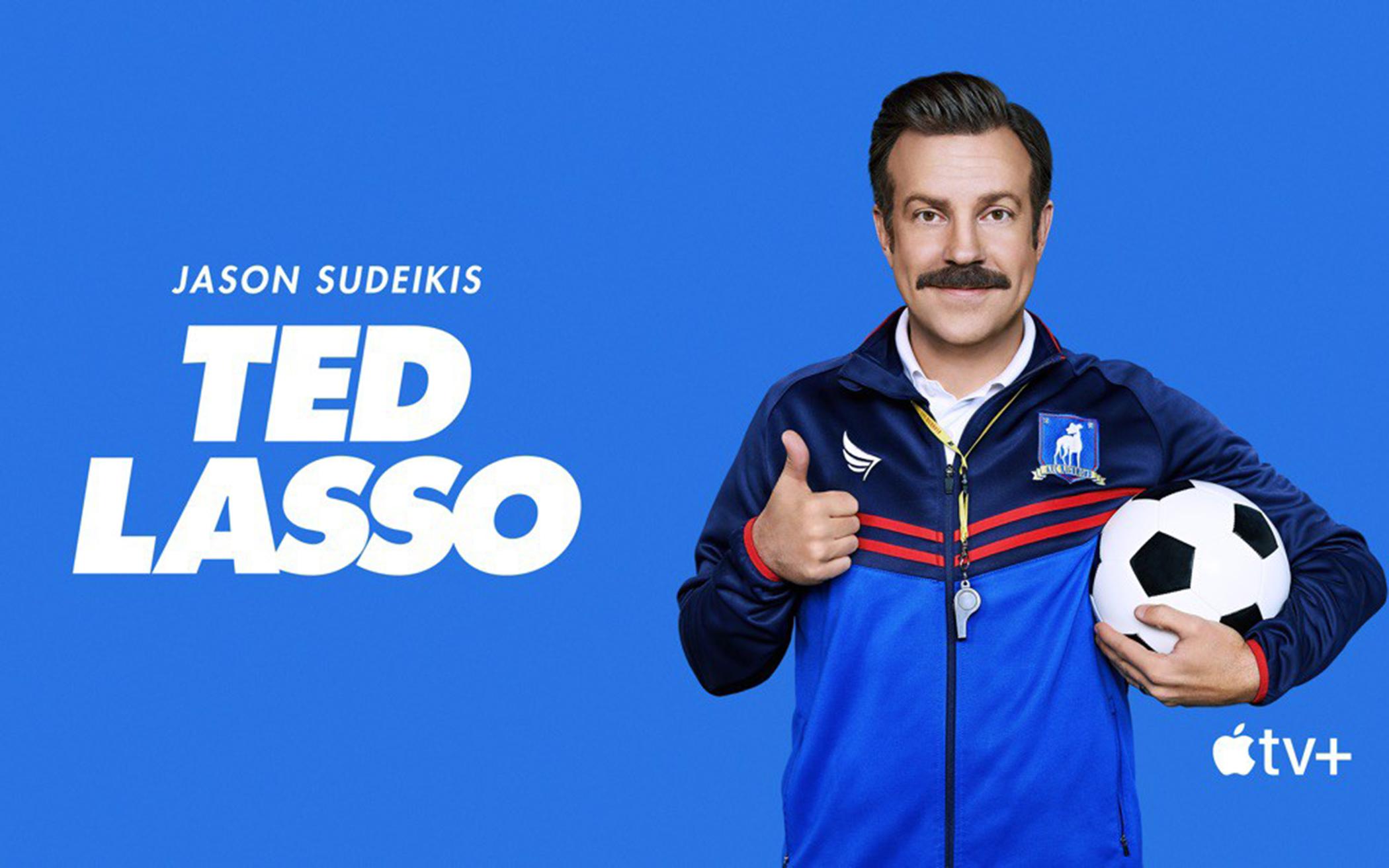Ted Lasso is too good to be true, and here I’m speaking of both the show itself as well as its titular character. To begin with the series, this might be the last show that America can agree on. On a recent episode of The Argument Podcast, David French made the case that it’s not just our politics that have become polarized but that everything has become so, including the entertainment we choose to consume. At the end of the episode, though, he recommends Ted Lasso as “maybe the last unifying piece of pop culture left in the United States of America.” I think French is onto something here: this is a show that cuts across the identity markers that so deeply divide us. And the way it does so is incredibly simple yet amazingly effective: it tells the story of a good person.
I should warn those of you who haven’t binge-watched it already that the show’s main premise is somewhat ridiculous. Lasso (Jason Sudekis), a successful American football coach, is hired to coach a mediocre British football club (translation: a soccer team). Of course, when he arrives in Britain with his assistant, Coach Beard, everyone who matters doubts him. The fans call him names, the press taunts him, and his players either ignore him or display outright disrespect. In any other sports story, he would prove them all wrong by capitalizing on his strategic acumen and knowledge of human psychology. And there’s a little of that. But mostly, he just works on winning people over with kindness.
Truthfully, you need to see it to believe it. Part of what works so well is how Jason Sudekis conveys Lasso’s charm, whether it’s when he remembers the name of the team’s kit man (equipment manager), whom everyone else ignores, or the genuinely warm—and hilarious—interactions between Lasso and Coach Beard, played by Brendon Hunt. These exchanges, in fact, are full of wit almost too quick to keep up with (no other show could throw terms like schadenfreude and semantic satiation around with such comedy and precision).
Lasso’s draw as a character also comes through in the fact that he is able to be fully present in this world without being fully a part of this world. This will sound counterintuitive, but although the series features some f-bombs and pretty deplorable behavior, it nonetheless feels like a family show. And the reason for this? It’s the way Lasso reacts to the other characters’ shortcomings, and even to his own; he doesn’t condemn. Rather, he gently confronts their actions with contagious joy, patience, and forgiveness (and if you are like me, you’ll find yourself getting teary during a few such scenes).
In one of the show’s best scenes, Lasso delivers a speech that encapsulates so much of what this show is about. The speech takes place toward the end of a game of darts, in which it’s apparent that the show’s only true villain, the overconfident Rupert Mannion, is about to get schooled by Lasso. In the midst of his last few winning throws, Lasso doesn’t gloat. Instead, he talks about a phrase from Walt Whitman he stumbled upon: “be curious, not judgmental.” His point being that those who choose judgment will always underestimate others around them while those who choose curiosity will never be disappointed. And so my advice is to give this show a try even if you do think its plot a little outlandish or you find yourself cagey about anything labeled “too good to be true”—because we could all use a little unabashed goodness in our lives these days. (Apple TV)
About the Author
Andrew Zwart lives in Grand Rapids, Mich., and is director of interdisciplinary studies at Kuyper College. He enjoys gardening, impromptu dance parties with his wife and two boys, and taking walks while listening to podcasts.

